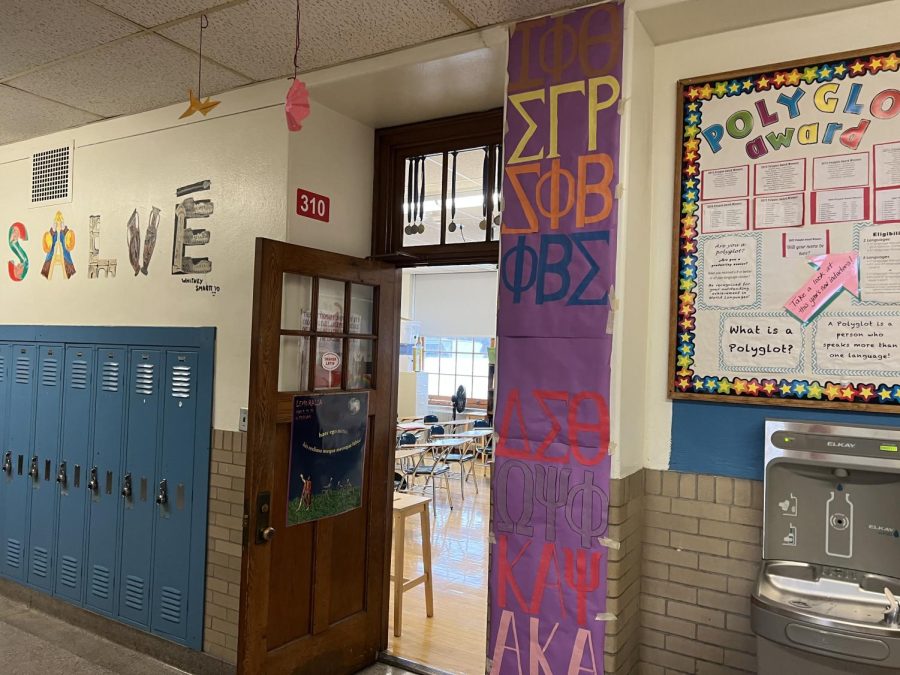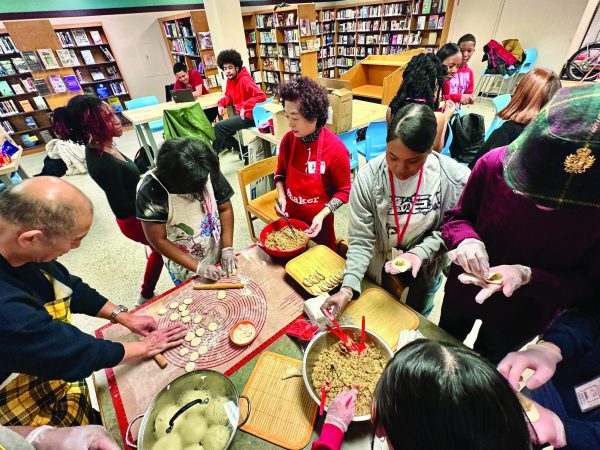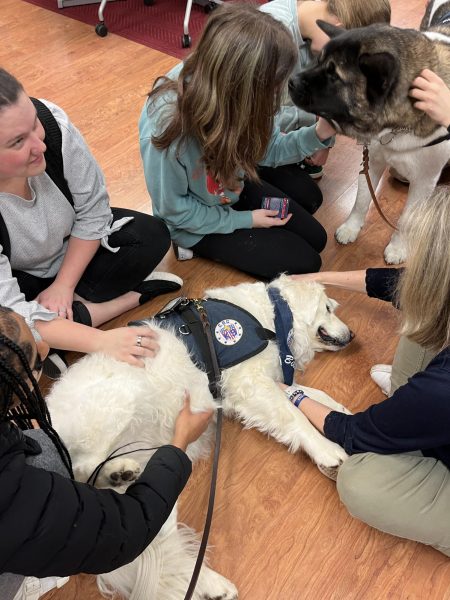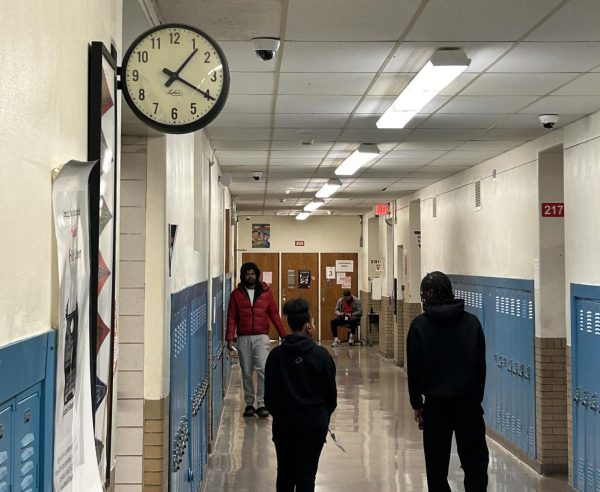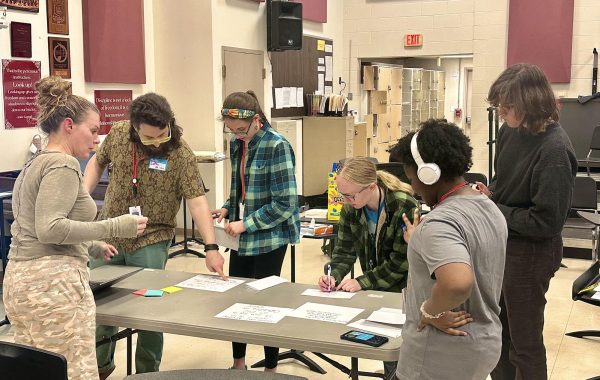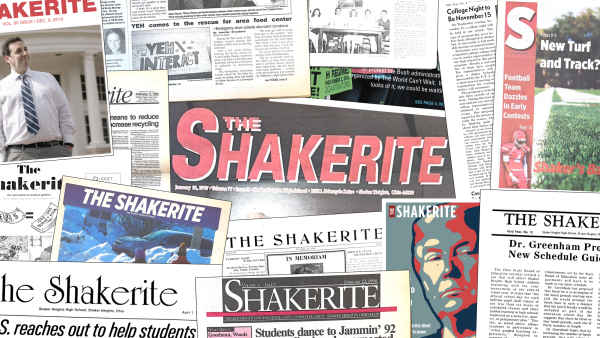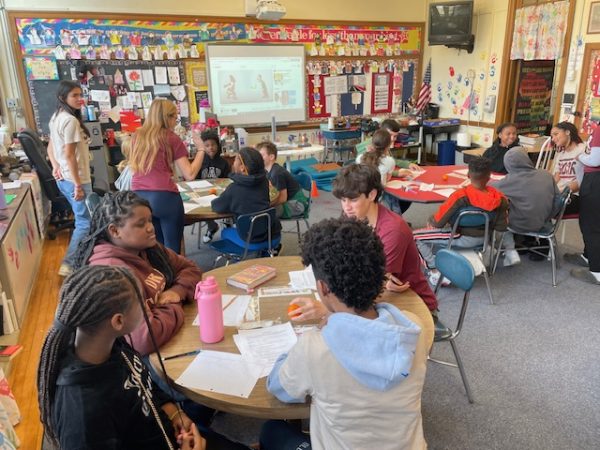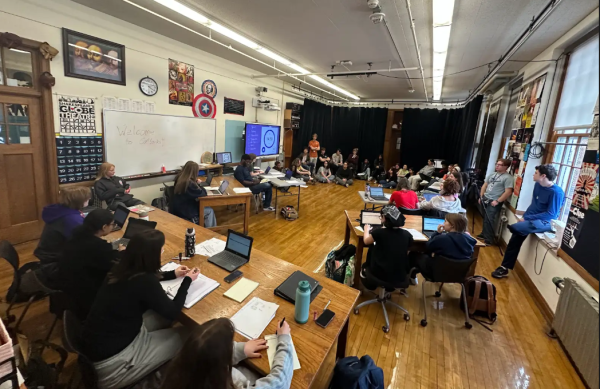Alive and Well
Latin is advantageous and creates unique opportunities for students
Foreign language is a key aspect of Shaker’s curriculum. From first to fifth grade, students are introduced to foreign language by taking Spanish. Students then choose a new foreign language at the beginning of sixth grade.
Students have the option to choose between Spanish, French, German, Latin and Mandarin. The District moved from Mandarin to Spanish for grades first through fifth during the 2020-2021 school year. This change came about due to the “staffing changes made with the guest teacher program for Mandarin teachers. Also enrollment numbers showed an increased interest in Spanish at the secondary level,” Director of School Leadership Dr. Erin Herbruck said.
When given the choice after fifth grade, Latin is typically not a student’s first choice. Senior Andrew Loney was one of the students who chose to take Latin. “I was planning on taking Spanish like all my friends, but my mom decided for me,” Loney said. Students feel that since Latin is no longer spoken and does not receive a lot of attention that it is not useful.
However, high school Latin teacher Nora Murphy believes that Latin is useful and can be helpful in navigating the English language in everyday life. Murphy has had many positive experience in the Latin program thinks taking Latin provides students with many benefits, like participating in Latin club which provides students with service opportunities and a chance to compete with other Ohio Latin students.
“We have an active Latin club where up to 45 students a year go to a state convention and represent Shaker and participate in athletic, academic and artistic activities. In the 14 years I have been involved, we have not been lower than third place in the state, and we are almost always first or second. Great experience for students. They get to do service as well as contests,” she said.
The high school’s Greek program is connected to the Latin program. Greek, usually a smaller class, used to meet before school during zero period. When zero period was taken away with the introduction of the block schedule, it prevented some prospective students from taking the class. “Removing zero period from the opportunities has definitely hurt our enrollment in Greek, because it makes it difficult for students who are taking an elective to meet all at the same period,” Murphy said.
High school and middle school Latin teacher Adam Fletcher recognizes the benefits of the Latin language based on his teaching experience. “The way it teaches people about how English works and it is a great vocab builder. It also helps you communicate effectively and express yourself. You are able to write well, speak well, and give great ideas,” Fletcher said, “It makes you think much more carefully and that’s an essential skill, it doesn’t matter what you’re doing.”
Senior Mia Compton-Engle, whose mother is a classics professor at John Carroll University, values the Latin language for similar reasons. “Latin has augmented my comprehension of linguistics, grammar and culture even beyond the ancient world. We are able to learn classics through memorable real-life reenactments and experiences,” Compton-Engle said, “By translating ancient texts, we gain better understandings of both history and ourselves within the context of contemporary society. I find it astounding how much I can relate to Roman authors despite our overwhelmingly different lives.”
Eighth grader Arabella Kielbasa decided to take Latin because “everyone else took the other languages, and I thought that Latin would be more interesting than French or Spanish that everyone else took,” she said.
Kielbasa thinks she will continue in the Latin program when she comes to the high school. “After my first year, I decided I loved the language. The teacher was great, and I wanted to continue taking Latin into my seventh grade year, which soon turned into my eighth grade year. I intend to take Latin and possibly Ancient Greek in high school,” Kielbasa said.
Junior Latin student Athan White was drawn to the Latin program due to outside experiences. “The language festival was a big attraction. I was fascinated by the weapons and the history and the cool way people spoke. The teachers and students all seemed really great and inviting, telling me about chariot races and holidays,” he said.
White also sees Latin as more than just a program, but a helpful, welcoming community. “Everyone who takes Latin is in some way involved with the atmosphere, if it’s the convention, chariot racing or just hanging out with friends. The program is big and strong and helps students in all areas of learning, from grade school to college and so on,” White said.
“The study of Latin is filled with enriching history and culture. It also includes life skills that can be used regularly,” Compton-Engle said, “Contrary to popular opinion, Latin is most definitely not a dead language.”
Comment using your Facebook, Yahoo, AOL or Hotmail account


